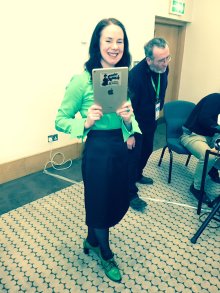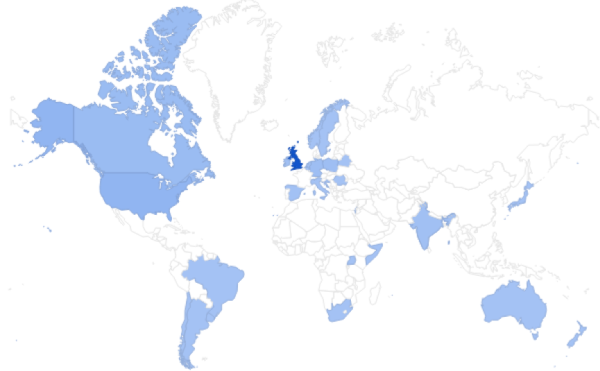So, the OER16 Open Culture Conference has been and gone and what an experience it was! Co-chairing OER16 with my inspiring colleague Melissa Highton has been an enormously rewarding experience and I owe a huge debt of thanks to everyone who volunteered their time, effort and creativity to make the conference such a success. In particular I’d like to thank our keynotes, Catherine Cronin, Emma Smith, John Scally, Jim Groom and Melissa Highton for their inspiring and thought provoking talks and, of course, the ALT team for supporting the conference and ensuring everything ran like clockwork. I can highly recommend charing an ALT conference if you’re ever thinking about it!

It’s too soon after the event for me to gather my thoughts and attempt to provide any kind of coherent overview so here’s a round up of the conference outputs and some of my personal highlights in lieu of something more considered.

Me & Ada LEGO Lovelace by Stuart Cromar
- OER16 Open Culture: oer16.oerconf.org, the conference blog with links to programme, presentations, livestreams, etc.
- ALT youtube channel: www.youtube.com/user/ClipsFromALT, videos of welcome, introductions, keynotes and sessions.
- Radio EDUtalk: www.edutalk.info/category/oer16/, interviews with conference participants and audio from keynotes.
- Francesbell’s Blog: francesbell.wordpress.com/tag/oer16/, a wonderful series of reflective posts from blogger Frances Bell.
- Open is messy but that’s okay: blog.digis.im/conferences/open-is-messy-thats-ok-oer16/, a lovely blog post from Simon Thomson.
- Wikimedia UK: wikimedia.org.uk/wiki/Open_Educational_Resources_conference, round up of Wikimedia UK’s activities at OER16.
- OER16: Empowered Openness: marendeepwell.wordpress.com/2016/04/21/oer16/, reflections from ALT’s Maren Deepwell.
- Anna Page’s photographs, www.flickr.com/photos/acpage/sets/72157665077094714/
- Martin Hawksey’s TAGSExplorer for OER16.
And of course, my personal twitter highlight of the conference…


Taxi Chic
OER16 Co-Chairs Melissa Highton & Lorna Campbell
by Catherine Cronin, CC BY SA
So now it’s time to pass the torch over to the fabulous Josie Fraser and Alek Tarkowski, two of my favourite people working in open education today, who’ll be co-chairing OER17: The Politics of Open. It’ll be awesome!

 I was surprised and delighted to be included in a blog post from the
I was surprised and delighted to be included in a blog post from the 


